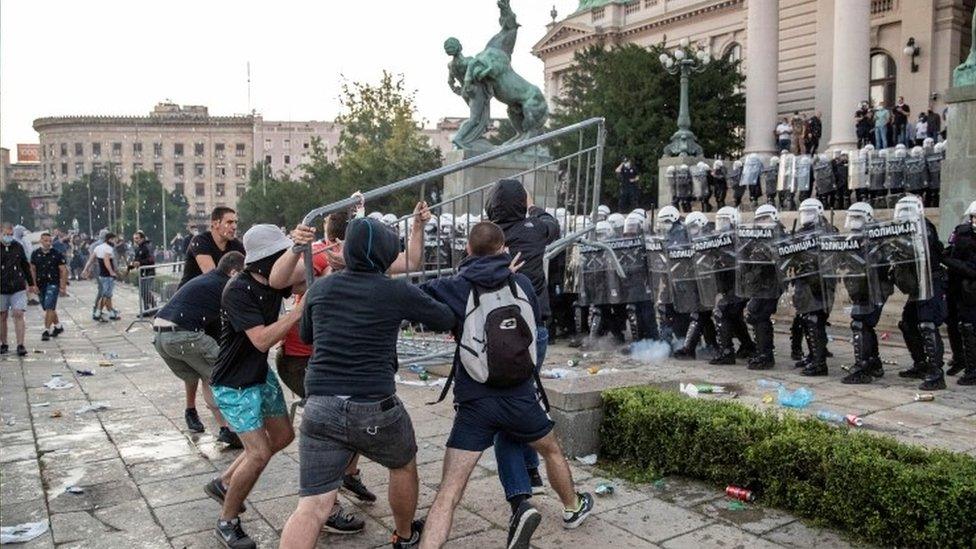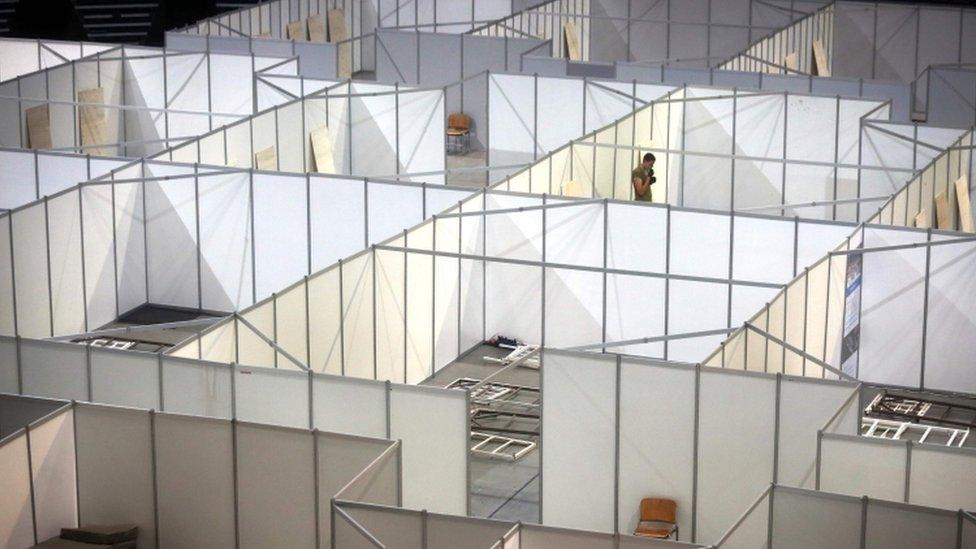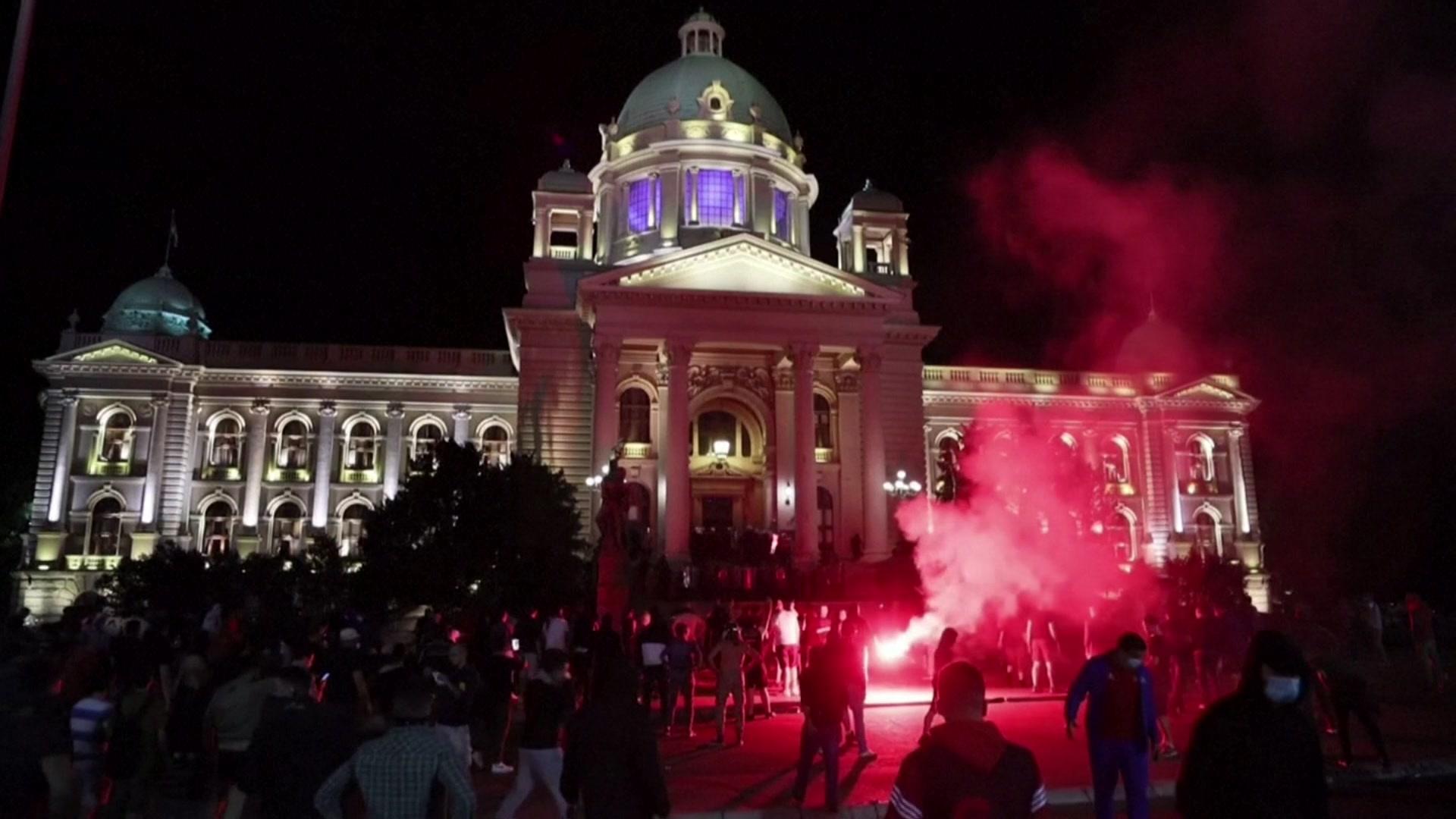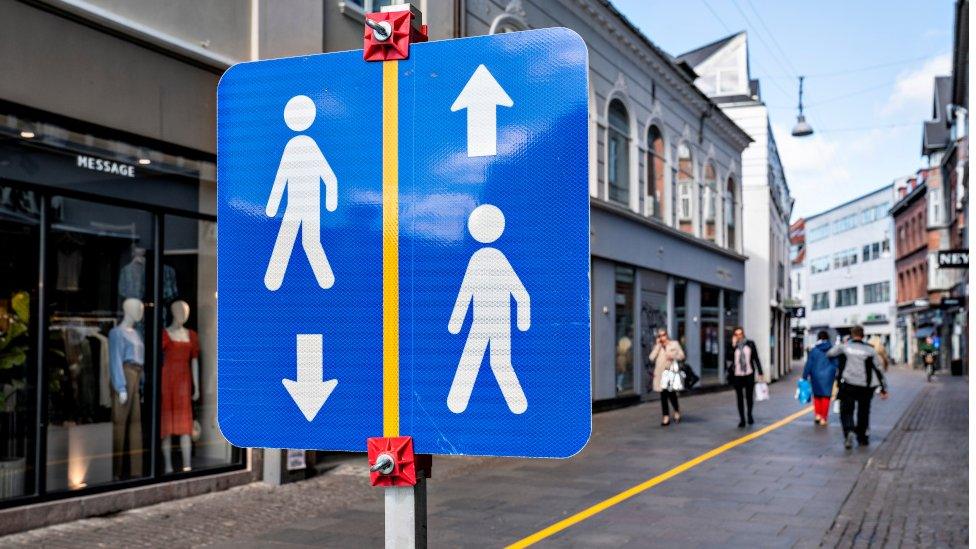Coronavirus: Serbia scraps curfew plan for Belgrade after protests
- Published
Opposition protesters stormed the Serbian parliament on Tuesday
The Serbian government has scrapped a plan to impose a weekend coronavirus curfew in Belgrade after two nights of protests in the capital.
Prime Minister Ana Brnabic announced more limited measures, including a ban on gatherings of more than 10 people.
President Aleksandar Vucic had wanted the curfew due to a rise in infections.
Human rights groups accused the authorities of a heavy-handed approach and urged restraint. Dozens of police and protesters have been injured.
Protesters are gathering again on Thursday evening but have been sitting on the ground in front of the National Assembly, BBC Serbian reports.
They say they want to distinguish themselves from violent groups that started clashes on the previous nights. President Vucic has blamed far-right nationalists for stirring up trouble on those occasions.
The first night of protests began peacefully outside the National Assembly on Tuesday evening but later turned violent. Crowds broke into the building, prompting police to intervene.
Thousands of people turned out for a second night of protests late on Wednesday, blaming the government for the spike in infections. Protests were reported in other cities including Nis and Novi Sad.

The prime minister said that with the surge in infections she could not understand why the protests were happening
Videos have emerged of police beating three men on a bench and journalists have been caught up in the violence too. A police officer reportedly had both legs broken.
The Council of Europe's human rights commissioner, Dunja Mijatovic, said the "violent dispersal of demonstrators" by police raised serious human rights concerns.
Amnesty International added that "disproportionate use of force" was not justified.
"Images of Serbian police firing tear gas and stun grenades indiscriminately into the crowd, and of protesters and bystanders being charged by mounted police and beaten by police in riot gear, raise serious concerns," said the group's Balkans researcher, Jelena Sesar.
What has the government announced?
The prime minister said a curfew would have required a state of emergency. Instead, she announced a ban on all gatherings of more than 10 people indoors or outdoors in the capital. The move could give police more reason to disperse further protests.
Shops, pubs, clubs, restaurants and other indoor spaces in Belgrade will have to close for the night at 21:00 local time (19:00 GMT) from Friday. Outdoor venues in the city can stay open until 23:00.
"A lockdown would have been be the most efficient measure... but we decided to take this interim step instead," said Ms Brnabic, adding that she could not understand why the protests were taking place.
It is an unusual climbdown by the authorities, the BBC's Guy Delauney in Belgrade reports.
Our correspondent says the protests are as much about the leadership style of President Vucic, and now the question is whether the government's rethink will be enough to end the unrest.

Soaked in tear gas
By Petra Zivic, BBC News Serbian, Belgrade
Central Belgrade was soaked in tear gas on Wednesday night as demonstrations turned violent for a second night in a row. Clashes began after a group of protesters started throwing different objects at the police surrounding the National Assembly building. Police soon fired back with tear gas, dispersing the crowd.
In the next couple of hours, protesters were chased out from central Belgrade by mounted police, tear gas and police batons.
'I was shouting 'Press, press' but they didn't care. They beat me up," journalist Zikica Stevanovic told the BBC. He is one of a number of journalists who were attacked.
Video of eight policemen beating up a man lying down on the street emerged online. On Thursday, a local non-governmental organisation, A11, lodged a formal complaint. Human rights organisations say they documented "dozens of cases of police brutality" in the last two days. But the ministry of interior said, "Police answered with violence only when their lives were endangered."

What's the current Covid-19 situation?
Serbia has seen a dramatic rise in cases and authorities have announced a state of emergency in several towns and cities.

A makeshift hospital has been set up inside the Belgrade Arena to cater for an increase in patients
Serbian authorities say there have been 352 deaths, external and 17,342 cases. Some 300 new infections are being reported daily.
Critics accuse the government of not giving the true number of deaths during the initial weeks of the pandemic.
Opponents also say President Vucic lifted the lockdown far too early in May, ahead of a 21 June election that his party won by a landslide.
Football matches were allowed to resume with spectators and there were few limitations on movement.
- Published8 July 2020

- Published2 July 2020
